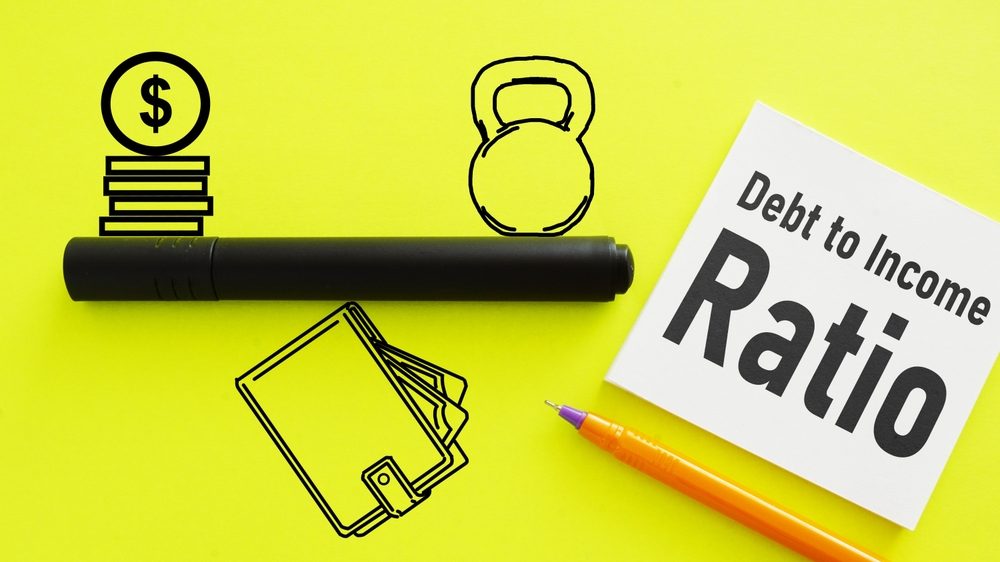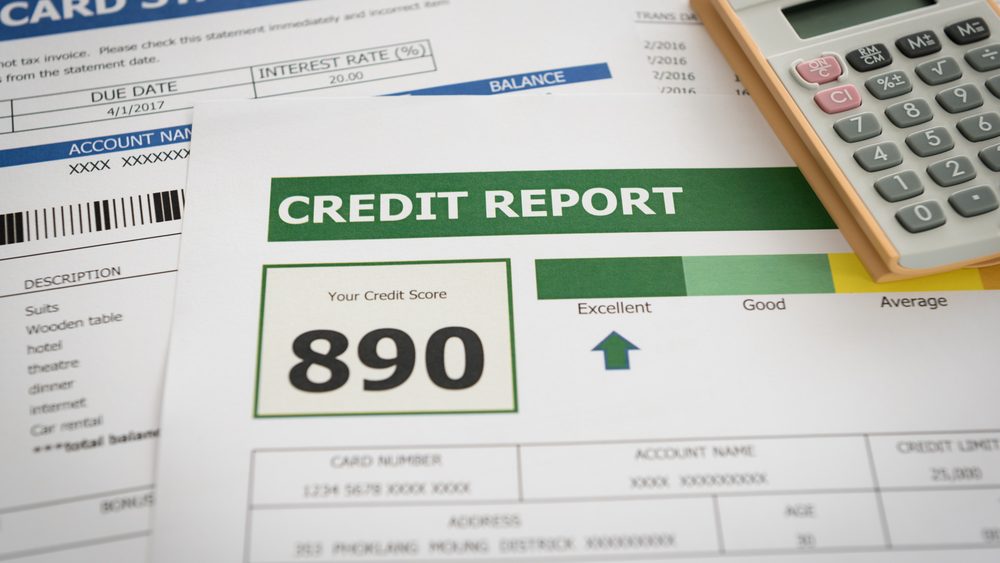Lenders often consider your debt-to-income ratio when applying for a personal loan to ensure you can handle the additional financial burden. Knowing how debt-to-income ratios work and what factors are included in the calculation can give you a better understanding of your finances when it comes to taking out a loan. This blog post will look at the basics of debt-to-income ratios and explore tips on improving it, so you’re more likely to get approved for the amount you need.
What is a Debt-to-Income Ratio?

Debt-to-income (DTI) ratio is a financial measure used to determine how much of your income is used to service monthly debt payments. It’s calculated by dividing your monthly debts, including your monthly mortgage payment, credit cards, car loans, and student loans, by your gross monthly income. The result is your debt-to-income ration (or your gross debt service ratio).
For example, if you make $5,000 a month and have $2,500 of debt payments due each month, your debt-to-income ratio would be 50%. If you make the same amount but only have $1,500 in debt payments due each month, then your debt-to-income ratio would be 30%.
Why Your Debt-to-Income Ratios Matters To Lenders

When lenders review your financial information, they want to ensure that you can make your monthly payments and repay your loan. Someone with a debt-to-income ratio that is too high may be at greater risk of missing payments or defaulting outright. This is why you need to know your situation before applying for a loan.
What is the Ideal Debt-to-Income Ratio For Borrowers?

The ideal debt-to-income ratio for borrowers will vary depending on their lender’s criteria, but most lenders prefer to see a DTI of 36% or lower when it comes to total monthly debt payments. Some lenders may be willing to approve borrowers with higher ratios, depending on their other financial qualifications and credit score. It may be worthwhile asking your lender about their criteria before applying for a loan.
Tips To Improve Your Debt-To-Income Ratio Before Applying for a Loan

There are several things you can do to help improve your debt-to-income ratio before you apply for a loan:
Pay Down Existing Debts
The best way to improve your DTI ratio is to pay down as much of your current debt as possible. This will reduce the amount you owe each month, thereby improving your overall DTI ratio.
Increase Your Income
Another way to improve your DTI ratio is to increase your monthly gross income. If you’re able, try taking on additional work or a side job so that the amount of money coming in each month is greater than the amount going out. This may also have the added bonus of reducing the amount of money you need to borrow.
Reduce Your Expenses
Finally, reducing your expenses can also help improve your debt-to-income ratio. Look for ways to cut back on unnecessary expenses and put more money toward paying down existing debt or building up your savings.
What Other Factors Might Lenders Consider When Approving Personal Loan Applications?

Your debt-to-income ratio is only one of several factors that lenders may consider when approving or denying your personal loan application. Here’s a short list of some of the others:
Your Credit Score
Your credit score is a significant factor in determining whether or not you’re approved for a loan and what interest rate you’ll be offered. If your score is too low, it may not matter what your DTI ratio is.
Your Employment History
Lenders also want to ensure that you have a steady job and can make regular payments on the loan, so they’ll review your employment history.
Your Payment History
Lenders will also want to see that you have a history of making on-time payments and don’t have any delinquent accounts. Lenders may perceive you as high-risk if you have historically been late getting your payments on time.
Whether You’ve Previously Defaulted On A Loan
In addition, lenders will want to ensure that you haven’t previously defaulted on a loan. If you have, it may be challenging to get approved for a loan in the future.
Other Loans You Might Have
Lenders may also consider any other loans that you currently have, such as car loans or student loans. The more debt you already have, the less likely you will be approved for a new loan. This goes double if your other debts are risky, such as high-interest credit card debt or payday loans.
Your Overall Financial Picture
Finally, lenders may take into account your overall financial picture. They’ll want to see that you have a good and stable income and can manage your finances responsibly.
Why You Should Consider SkyCap Financial For Your Next Loan

At SkyCap Financial, we understand that everyone’s financial situation is unique. We take a comprehensive approach to evaluate loan applications and look at all the factors mentioned above to determine your eligibility. We also offer SkyCap University to help borrowers improve their debt-to-income ratio and overall financial picture.
Our goal is to help people get the loans they need in a timely and convenient manner. We strive to provide excellent customer service and work hard to ensure you get the best loan terms and interest rates.
If you’re looking for a personal loan, apply today!
Final Thoughts
Knowing your debt-to-income ratio is an important step in understanding your overall financial picture and being able to take out a loan responsibly. It is not the only factor lenders consider when approving applications, but it can play a role in their decision-making process. Being mindful of how much debt you hold in relation to your income is one way to increase the chances of being approved for a personal loan. Taking steps to improve your debt-to-income ratio over time can also help you build a more solid financial foundation and access better loan terms in the future.
Are you in the market for a loan? Consider SkyCap Financial. We specialize in loans for Canadians with poor credit. Apply online today using our secure application form.







